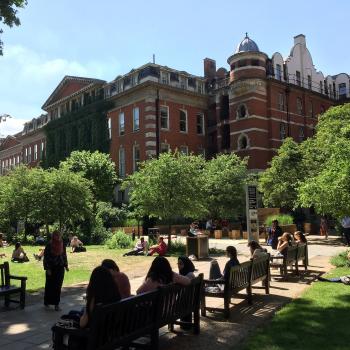
“NDE,” writes the Dutch cardiologist Pim van Lommel, “pushes at the limits of medical ideas about the range of human consciousness, and the mind-brain relation.”
In support of that, he offers considerable material, including the following three quotations, taken from Pim van Lommel, Consciousness Beyond Life: The Science of the Near-Death Experience (New York: HarperCollins, 2010), pages 162-163. The first is from Dr. Bruce Greyson:
The paradoxical occurrence of heightened, lucid awareness and logical thought processes during a period of impaired cerebral perfusion [blood flow] raises particularly perplexing questions for our current understanding of consciousness and its relation to brain function. As prior researchers have concluded, a clear sensorium and complex perceptual processes during a period of apparent clinical death challenge the concept that consciousness is localized exclusively in the brain.
The second is from Dr. Sam Parnia and Dr. Peter Fenwick:
The data suggests that in this cardiac arrest model, the NDE arises during unconsciousness. This is a surprising conclusion, because when the brain is so dysfunctional that the patient is deeply comatose, the cerebral structures which underpin subjective experience and memory must be severely impaired. Complex experiences such as are reported in the NDE should not arise or be retained in memory. Such patients would be expected to have no subjective experience, . . . as those cerebral modules which generate conscious experience and underpin memory are impaired by cerebral anoxia.
Finally, the third quotation is from Dr. Penny Sartori:
The phenomenon remains unexplained when considered from the current scientific perspective of consciousness being a by-product of neurological processes. . . . The fact that clear, lucid experiences were reported during a time when the brain was devoid of activity . . . does not sit easily with current scientific belief.
***
Certain fields of scholarship and science can be described, without too much exaggeration, as being in something of a crisis:
“In Psychology And Other Social Sciences, Many Studies Fail The Reproducibility Test”
***
How to communicate with hypothetical intelligent beings of a type that we don’t know and might not even be able to comprehend?
***
This suggestion may give a whole new significance to the film that my friend William Hamblin and I have long dreamed of making: Bill and Dan’s Excellent Adventure in Anti-Mormon Zombie Hell:
“We live in a zombie galaxy that died and came back to life, claims new study”
***
My blog has captured the attention of a hyperactive misreader who continually (and delightedly) laments my complete lack of scientific understanding. Recently, he’s revealed that, in my early July debate with Scientific American‘s Michael Shermer, I attacked science because of its failure to deliver “certainty.” Or else that, in some way or other, I failed to understand science on even a basic level. Or something of that sort. Feel free to read or to listen to what I said during the debate (it’s also available on C-Span) and see whether you can figure out where and how I did those very lamentable things.
Posted from Seaside, Oregon












